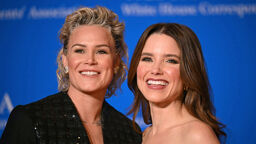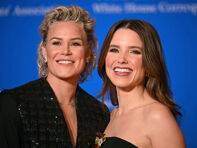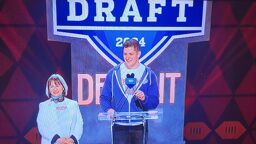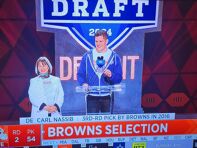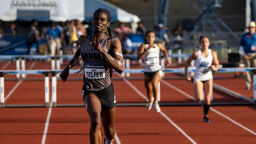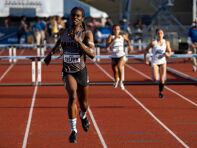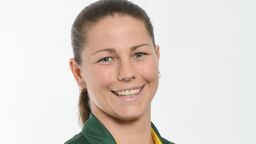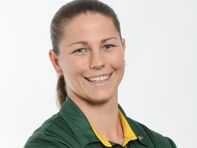After two years of controversy surrounding issues of inclusion, USA Powerlifting has taken a step aimed at changing the conversation. On Monday, the sporting body announced the creation of a new division irrespective of gender identity, and three other new divisions devoted to adaptive athletes.
The “MX” category will allow for what the USAPL deemed “a dedicated competition space for any and all athletes no matter how they identify.” Competitors will be divided by weight through 14 modified “gender neutral” weight classes built from a combination of the current men's and women’s weight classifications.
In competition, the basic rules will still apply but the “best lifter” designation will be decided by using the International Powerlifting Federation’s “GL formula”. The formula is a statistics-driven system built around averages of male and female IPF GL points that correspond to an individual lifter’s body weight and their total weight lifted.
A USAPL spokesperson told Outsports that they have studied the MX concept since 2018, the same year that the UK-based LGBT Powerlifting Union created and implemented the division in their competitions. LGBT Powerlifting Union co-president Chris Morgan, an out gay longtime competitor, multi-time champion and Gay Games Ambassador, applauded USAPL’s efforts.
“This is a major step forward and progress for USA Powerlifting,” Morgan told Outsports. “Welcoming LGBT+ people and offering a ‘route to platform’ through to their nationals championships.”
Morgan and his organization are based in Great Britain.
“The LGBT Powerlifting Union acknowledge any attempt by mainstream organizations to make Powerlifting and Strength sports more welcoming and accessible for LGBT+ athletes and encourages continued consultation and dialogue over these matters,” he continued.
Differences in regulations regarding transgender athletes leave supporters and critics worlds apart. The LGBTPU’s MX Division uses the current International Olympic Committee guidelines on transgender participation in their policy. USAPL chose not to make those guidelines a part of their plans, citing a line within the 2016 IOC policy, which states: “restrictions on participation are appropriate to the extent that they are necessary and proportionate to the achievement of that objective” of fair competition.

Because of that difference, the USAPL’s ban on transgender athletes will continue. The policy is at the center of a continuing legal fight with powerlifter JayCee Cooper that has raged for nearly two years. Cooper, a trans woman in Minnesota, was banned by the USAPL just days after a winning a state championship in 2019. Cooper filed a discrimination complaint with the Minnesota Department of Human Rights in June after the USAPL passed a total ban on all trans athletes in May 2019. According to Cooper, the case remains in the investigation phase with the MDHR.
Her attorney, Jess Braverman, legal director for Gender Equality. vowed her organization will “continue fighting to hold USA Powerlifting accountable for their transphobic policies and to ensure every athlete, of every gender identity, has equal opportunities to compete in the sports they love.” Braverman spoke to the Bay Area Reporter.
“USA Powerlifting continues to misunderstand and isolate the TNBGNC community while thinking that forcing us to compete in an othered category is offering grace,” Cooper told Outsports. “Continuing to ban trans men and many non-binary folks who access affirming care through hormone replacement therapy is not grace. Unlawfully taking away a trans woman’s right to sport without discrimination is not grace.”
Cooper is also a co-director for the inclusion advocacy group Pull for Pride, which further criticized this move in a statement: “The division is USAPL’s desperate attempt to be seen as inclusive and affirming of transgender athletes.”
Joining the chorus, Athlete Ally also issued a statement, calling the move by USAPL “harmful.”
Disabled Girls Who Lift put forth a statement as well. In a post on Instagram, they voiced frustrations with similarities in USAPL’s restrictive attitudes toward trans athletes showing up in their new adaptive athlete category.
“It’s kinda funny how able-bodied cisgender folks still love to preach their own definition of inclusivity,” the statement read, “We asked for equitable accommodations — the ability to use our lifting equipment. We asked to be able to compete with everyone else. We asked to be treated like athletes. Like humans.”
Despite the flaws that even Morgan noted as “a missed opportunity to dialogue,” he applauded USAPL saying, “We are encouraged to see that USA Powerlifting have now started to consider Transgender, Non Binary and Intersex athletes.”
“I’m thrilled,” added Ardel Thomas, the LGBT Powerlifting Union’s intersex and nonbinary outreach representative. In an interview with the Bay Area Reporter, Thomas — who identifies as genderqueer — praised the USAPL. “I think it shows forward motion on their part. I feel like USA Powerlifting is making a very concerted effort. For them to recognize an MX category is phenomenal.”
Thomas and Morgan are very much alone in their applause. Non-binary Australian lifter Dr. Andy Kaladelfos competed in his country’s first MX competitions 2 years ago. He has worked to advance inclusion in the sport in Australia and in sports worldwide by joining 83 other academics who signed a letter opposing World Rugby’s trans athlete ban in September. Kaladelfos expressed displeasure with USAPL’s policy and with the LGBTPU’s support of it.
“It is very disappointing that LGBT Powerlifting Union has not taken a stronger stance against the proposed category,” Dr. Kaladelfos told Outsports. “While acknowledging that it does not meet international standards, LGBT Powerlifting Union issued a statement labeling the category as a ‘step forward ‘and that trans athlete will be ‘welcome’ in USAPL. This misrepresents the policy. The category is not inclusive.”
Two out trans male athletes voiced their complaints via Instagram: Chris Mosier and Ness Murby.
While some trans athletes would feel comfortable in a third competition category by choice, forcing trans & non-binary athletes into a separate category is simply a way to other athletes & discriminate against them while attempting to appear inclusive.
— The Chris Mosier (@TheChrisMosier) December 23, 2020
As a former powerlifter, the harmful course of action USAPowerlifting has taken to force segregation is deeply saddening and disturbing
— Ness Murby (@NessMurby) December 23, 2020
Othering does not serve inclusivity nor does it protect sporting integrity — it sets a dangerous precedent with deep moral implications
Individual competitors who spoke to Outsports agreed with Mosier and Murby. “We as trans folks get a lot of hate and mistrust from the general public as it stands because to them it seems as if we want handouts and that's exactly what this is,” said Scott Percy, a Baltimore-based powerlifter. “While I am happy that they are allowing a change to their categories, I feel that it is going to do more harm than good.”
Percy, a transgender man, also noted that the USAPL’s policy denying a therapeutic use exemption (TUE) for testosterone remains despite the new inclusive division. IOC allows the exemption for transmasculine athletes in their guidelines, but not USAPL’s TUE.
Even in the new categories, even low doses of testosterone are not allowed by USAPL, which a spokesperson explained this way:
“We remain true to our roots, founded as the American Drug Free Powerlifting Association. We have never allowed strength-improving medications for any medical condition. There are many powerlifting organizations that allow androgens and who do not drug test. We encourage athletes to find an organization that suits them and is consistent with their needs.”
The spokesperson for USAPL responded to criticism of its new category by saying it will evolve: “With any new category or division, it is impossible to know all the answers when it is first established. The raw division started in 2007 and has gone through numerous changes through the years. We anticipate this to be the case with the MX category as well.”
Val Schull, a non-binary lifter in Indiana who regularly competes in the Revolution Powerlifting Syndicate, noted that in RPS competition they are classified in the results as who they are — non-binary. They feel that USAPL’s outreach to non-binary competitors cannot override the concerns of athletes like Percy and Cooper, who are denied the opportunity to compete as they identify.
“I want the USAPL to consider that trans and non-binary athletes want to be able to compete in the category that represents their gender,” Schull told Outsports. “We should be integrated into the sport instead of just being added as an afterthought.“















